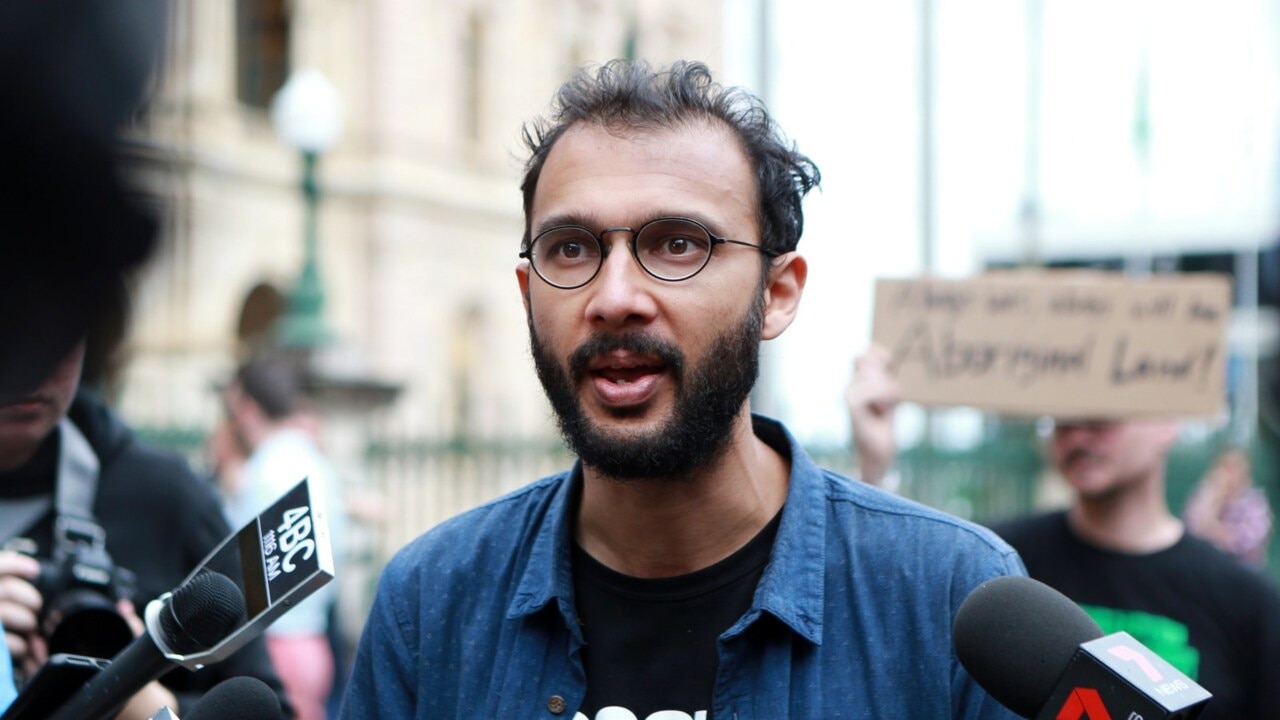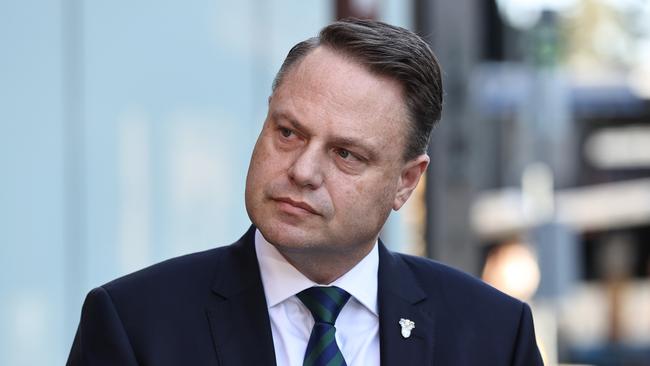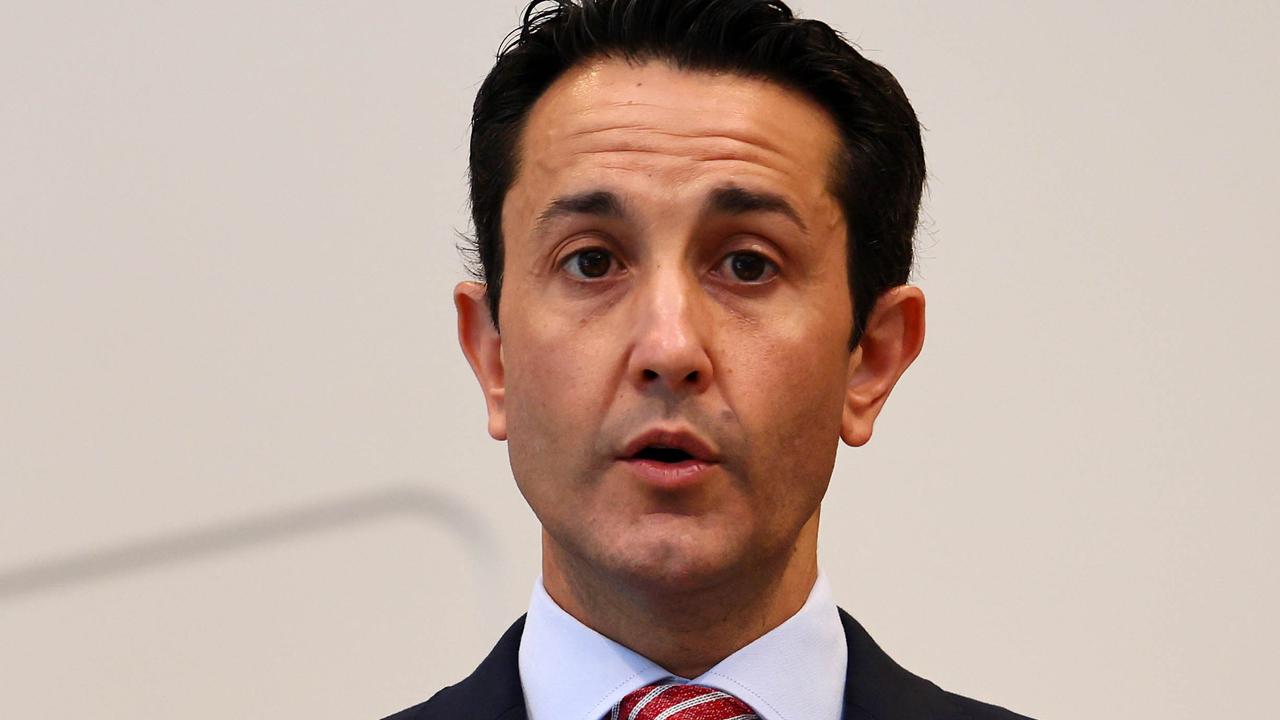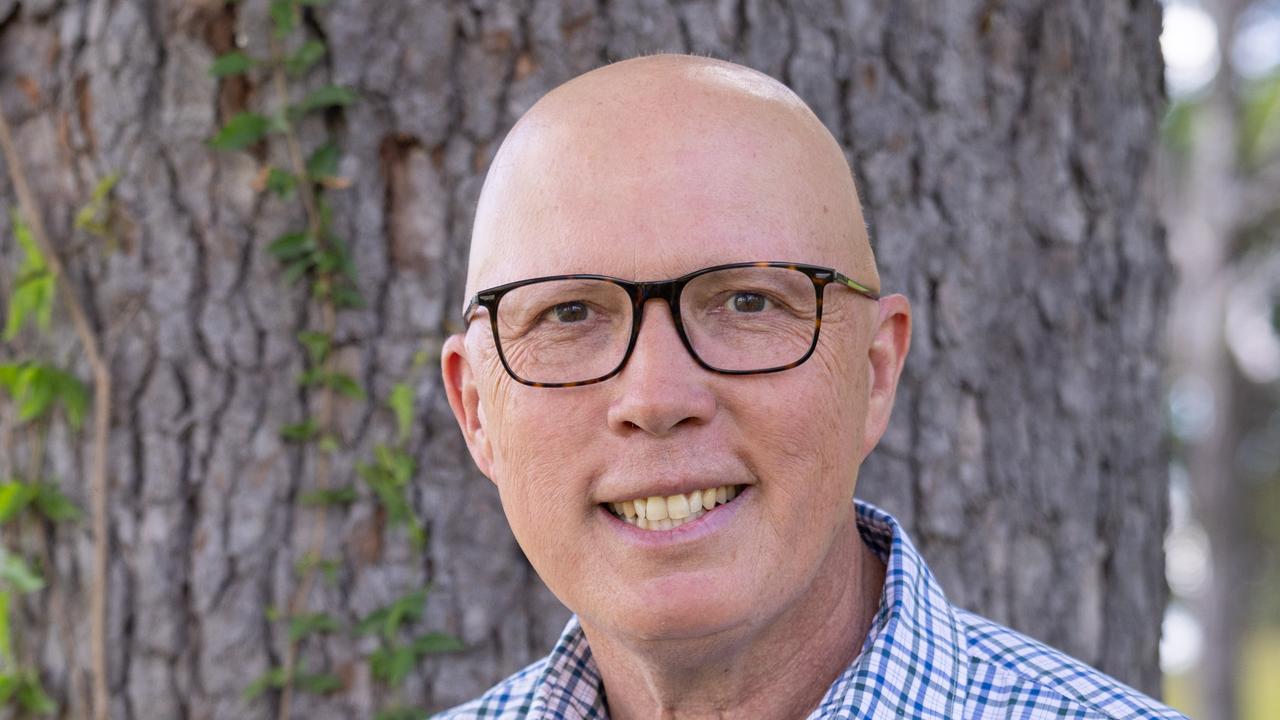Labor, Greens push for compulsory preferential voting at the 2024 Brisbane election
The Palaszczuk Government won’t rule out making huge changes to voting at the 2024 Brisbane council elections that would likely boost both Labor and the Greens’ chances of winning City Hall. VOTE IN OUR POLL

QLD Politics
Don't miss out on the headlines from QLD Politics. Followed categories will be added to My News.
The Palaszczuk government is being urged by Labor and Greens councillors to introduce a new voting system for Brisbane council elections that would likely boost both parties’ chances of winning more seats at City Hall.
Local Government Minister Steven Miles won’t rule out introducing compulsory preferential voting at the 2024 Brisbane election, which would force voters to number every box on the ballot.
Such a move would likely benefit Mr Miles’ own party, with more Greens preferences to flow to Labor and vice versa – putting pressure on Lord Mayor Adrian Schrinner’s LNP team in wards they hold with slim margins.
The Local Government Association of Queensland has declared they will oppose any move to change the current optional preferential voting system, which allows voters to just vote 1 on their ballot.
But Labor councillors have confirmed they want the government to adopt a compulsory preferential system, and so too do the Greens – who say there is no denying that it would see them win more wards.

Mr Miles was asked last week in budget estimates if the government would retain the optional preferential system for the 2024 Brisbane election – and he simply said he wasn’t aware of any “active discussions” to change it.
When asked later by The Sunday Mail if he could rule out introducing compulsory preferential voting for the next Brisbane poll, he wouldn’t – with his office referring to his earlier comments.
The Palaszczuk government had tried to introduce the compulsory preferential system across the state at the last council elections, but backed down following a fierce campaign from the LGAQ and suggestions from the LNP that the move was about rigging the election.
A Sunday Mail analysis suggests three LNP wards would likely have gone to Labor or the Greens at the 2020 poll if the system had been used, and if exhausted votes had followed the trends of those with preferences. This would have included Paddington, where the Greens would have come out on top, as well as Enoggera, where Labor would have won.
But this would not have been enough to overcome the LNP’s commanding majority in the council chamber, where they hold 19 of 26 seats as well as the lord mayoralty.
A number of other wards would have had closer two-party preferred margins, though, such as Coorparoo and Walter Taylor – where the Greens both came in second.
Mr Schrinner would not have lost the lord mayoralty if compulsory preferencing had been in place.
However, tens of thousands of exhausted Greens votes would likely have flowed to Labor’s mayoral candidate – narrowing the 56.3-43.7 per cent two party preferred margin that Mr Schrinner won with.
Mr Schrinner last week indicated that he would hit back at any attempts to change the current voting system.
“Steven Miles has established a good working relationship with local governments across the state,” the Lord Mayor said.
“I am sure he wouldn’t move to introduce something that wouldn’t have the support of local councils, including Australia’s largest council.”
Labor’s leader at Brisbane City Council, Jared Cassidy, said Labor councillors encouraged the state government to introduce the compulsory preferential voting model.
“A consistent and democratic system of voting at all levels of government is Labor Party policy,” he said.
“It’s not about helping one party or another. It’s about ensuring our elected representatives reflect the views of the electorate.”
Greens councillor Jonathan Sri also hit out at the current optional preferential voting system, claiming it delivered results that didn’t “accurately represent the democratic will of the people”.

“There’s no denying that a CPV system would mean the Greens win more Brisbane wards,” Cr Sri said.
“But that result would also be much more reflective of the growing number of people who are voting Greens.
“It would be a lot cleaner, simpler and more democratic if we had the same voting system for all three levels of government, rather than the current situation where we have one system for state and federal governments and a different system for Brisbane City Council.”
In the last federal election, the Greens vote surged in the three Brisbane-based seats they won from both the LNP and Labor.
State opposition local government spokeswoman Ann Leahy said Mr Miles needed to categorically rule out changing the current voting system for councils.
“It’s just absolutely rigging the voting system,” she said.
LGAQ chief executive Alison Smith also said Queensland councils supported the local government electoral system as it currently stood, saying it had served the sector well.
“Queensland councils have made their position clear on this issue,” she said. “The LGAQ and its members would strongly oppose any moves to change it.”
Compulsory preferential voting is used at federal elections, and was introduced by the Palaszczuk government for state elections in 2016 without any consultation in a rushed law change.
Griffith University political expert Paul Williams said in practical terms, the introduction of compulsory preferential voting would benefit Labor.
“It would minimise the leakage of votes,” he said.




